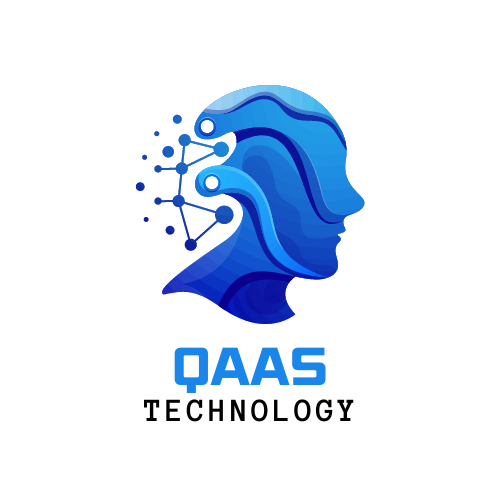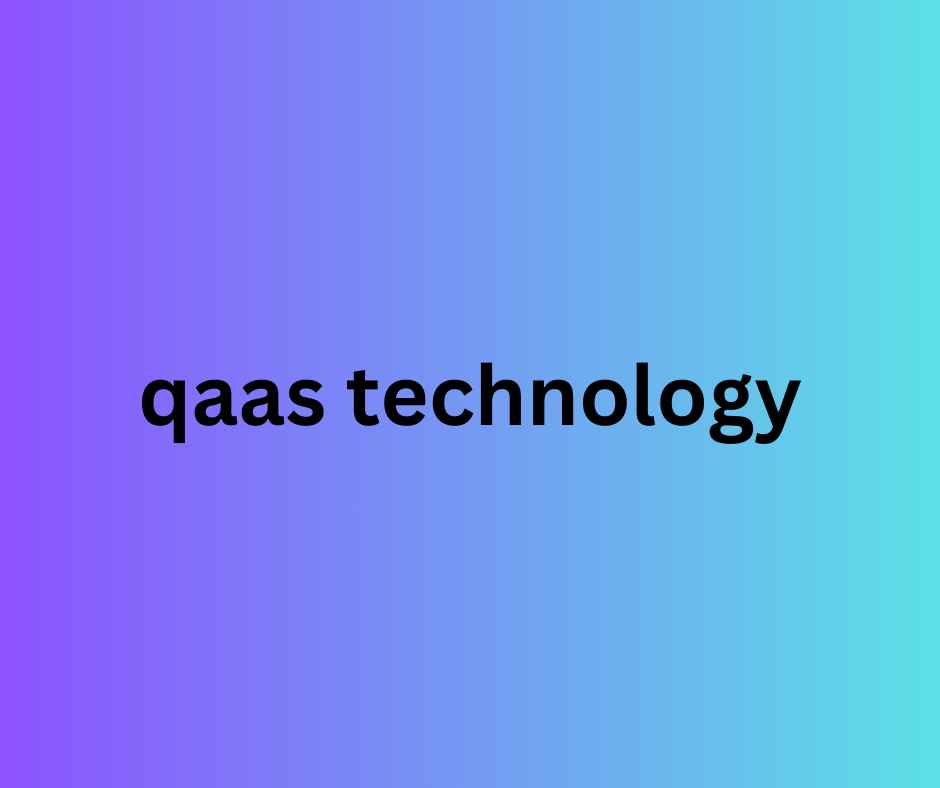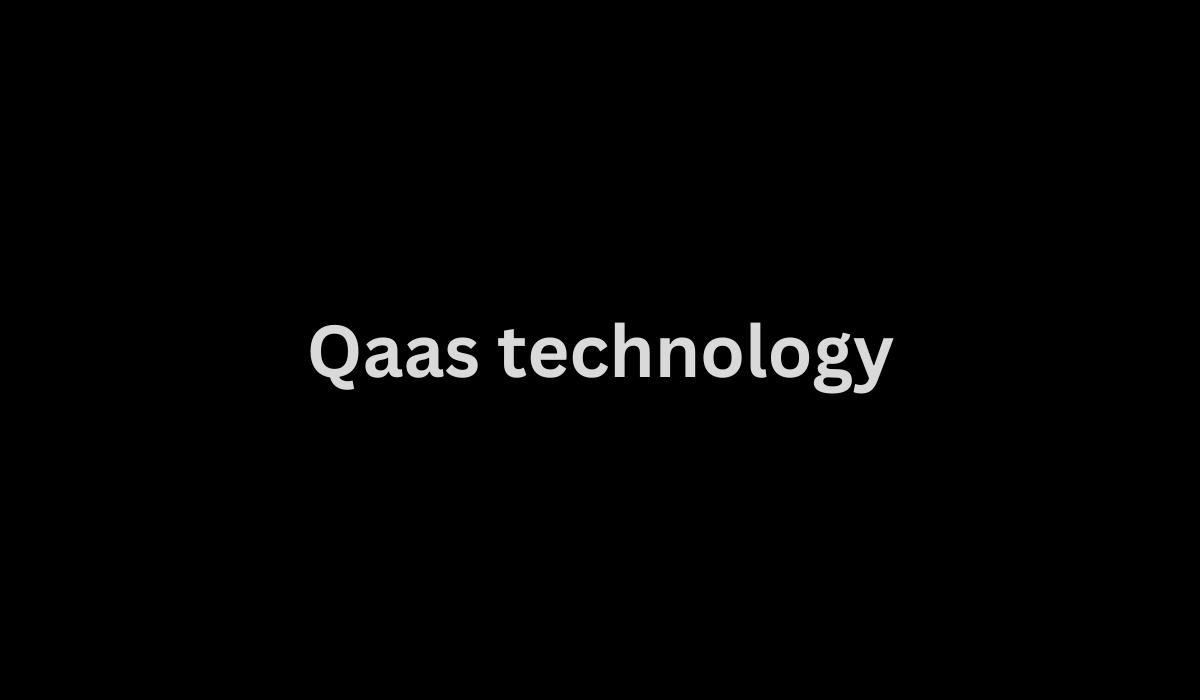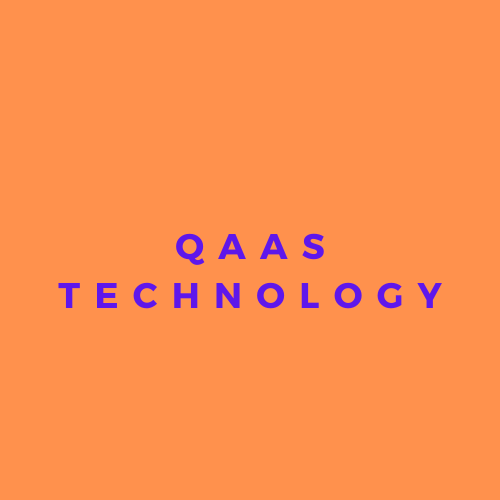Introduction of qaas technology
In the quickly developing scene of innovation, the mix of Qaas technology (Quality Confirmation as a Help) and man-made consciousness (man-made intelligence) stands apart as a promising outskirts. As organizations progressively depend on complex programming frameworks, guaranteeing their quality and dependability becomes principal. QAAS, joined with artificial intelligence, offers an extraordinary way to deal with quality confirmation, driving effectiveness, precision, and development in programming improvement.
Understanding QAAS
QAAS is a cloud-based arrangement that gives complete quality confirmation administrations. Dissimilar to customary quality confirmation, which frequently includes in-house groups and manual cycles, QAAS use cloud innovation to convey versatile, adaptable, and practical QA administrations. This model permits organizations to re-appropriate their QA needs, guaranteeing that product is completely tried and fulfills the most elevated guidelines before arrangement.
The Role of AI in QAAS
Man-made consciousness altogether improves the capacities of QAAS via mechanizing and upgrading different parts of the quality confirmation process. Computer based intelligence calculations can rapidly break down enormous volumes of information, distinguish designs, and anticipate potential issues that may be missed by human analyzers. This capacity to process and decipher information at fast and exactness is upsetting the QA business.
Automated Testing
One of the main effects of man-made intelligence on Qaas technology is in mechanized testing. Man-made intelligence driven instruments can make, execute, and oversee experiments more effectively than customary techniques. These apparatuses can reproduce various client connections with the product, distinguish messes with, and propose fixes progressively. This velocities up the testing system as well as guarantees a more significant level of exactness and unwavering quality.
For example,
Man-made intelligence can produce test scripts in view of the application’s use designs, which are more intelligent of certifiable situations. This lessens the probability of undetected bugs coming to creation, accordingly upgrading the product’s quality and client experience.
Predictive Analytics
Simulated intelligence fueled prescient examination is another unique advantage in QAAS. By investigating authentic information and current testing measurements, man-made intelligence can estimate expected issues and recommend proactive measures. This prescient ability helps in recognizing basic regions that need more thorough testing, advancing asset distribution, and focusing on experiments in light of hazard evaluation.
For instance,
On the off chance that a specific module of the product has generally shown more bugs, prescient investigation can feature this module for greater testing. This designated approach guarantees that high-risk regions are totally checked, lessening the possibilities of post-organization disappointments.
Continuous Integration and Continuous Deployment (CI/CD)
Simulated intelligence in QAAS likewise works with persistent reconciliation and ceaseless organization (CI/Disc) pipelines. In a CI/Cd climate, code changes are consequently tried and conveyed, guaranteeing that new highlights and updates are rapidly and securely coordinated into the creation climate. Simulated intelligence upgrades this cycle by giving smart observing and robotized testing, guaranteeing that every mix is consistent and mistake free.
Artificial intelligence driven QAAS apparatuses can screen the CI/Album pipeline, recognize peculiarities, and give constant input to engineers. This persistent criticism circle helps in keeping up with great norms all through the advancement lifecycle and considers fast emphasis and improvement.
Benefits of QAAS and AI Integration
The mix of QAAS and man-made intelligence offers various advantages that are reshaping the product advancement industry.
Improved Productivity:
Mechanized testing and prescient investigation smooth out the QA interaction, lessening the time and exertion expected for manual testing. This prompts quicker improvement cycles and speedier opportunity to-advertise for new highlights and updates.
Cost-Viability:
By utilizing cloud-based QAAS arrangements,
Organizations can decrease the expenses related with keeping up with in-house QA groups and foundation. Man-made intelligence driven robotization further reduces expenses by limiting manual intercession and lessening the requirement for broad adjust.
Adaptability:
QAAS stages can undoubtedly scale to oblige fluctuating testing needs. Whether a venture is little or enormous, QAAS can give the vital assets and skill to guarantee thorough testing.
Further developed Exactness:
Simulated intelligence calculations can distinguish issues with a serious level of precision, lessening the gamble of undetected bugs. This outcomes in more solid and hearty programming, improving client fulfillment and trust.
Proactive Issue Goal:
Prescient investigation empower proactive distinguishing proof and goal of expected issues, keeping them from growing into serious issues. This proactive methodology guarantees higher programming quality and dependability.
Challenges and Future Directions
Regardless of its benefits,
The coordination of QAAS and simulated intelligence isn’t without challenges. Guaranteeing information security and protection in cloud-based QAAS arrangements is basic, particularly for applications dealing with delicate data. Moreover, the underlying arrangement and preparing of man-made intelligence models require critical speculation and skill.
Looking forward,
The fate of QAAS and artificial intelligence guarantees significantly further developed capacities. As computer based intelligence advances keep on developing, we can expect more refined testing instruments, upgraded prescient examination, and more prominent robotization. The improvement of logical man-made intelligence will likewise be essential, giving straightforwardness in man-made intelligence dynamic cycles and building trust among partners.
All in all,
The mix of qaas technology innovation and man-made brainpower addresses the following wilderness in quality affirmation. By saddling the force of artificial intelligence, QAAS can convey more productive, precise, and savvy QA administrations, driving advancement and greatness in programming improvement. As organizations endeavor to fulfill the developing needs for top notch programming, the reconciliation of QAAS and man-made intelligence will be instrumental in accomplishing these objectives.






